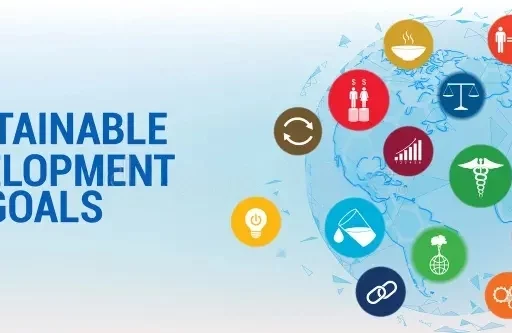Sustainability reporting (SR) is an essential practice for modern organizations. It requires corporations to publicly disclose their environmental, social, and governance (ESG) performance. This transparency promotes accountability and enables consumers to assess a company’s commitment to sustainable practices. In this blog, we’ll look at what SR is, why it’s important, and how platforms like Fherist can help.
Understanding of Sustainability Reporting
Sustainability reporting is the process of disclosing a company’s environmental, social, and governance performance. This involves disclosing how a company handles its environmental effect, social duties, and governance frameworks. The purpose is to present a thorough overview of a company’s sustainability activities that stakeholders including investors, consumers, workers, and regulators can evaluate.
Sustainability reports often include a wide variety of subjects, such as carbon footprint, resource utilization, labor practices, community participation, and governance. Companies that consistently publish these reports demonstrate their commitment to operational openness and accountability.

Importance of Sustainability Reporting
Transparency and Trust
One of the key reasons why sustainability reporting is essential is that it encourages openness. Companies that freely discuss their ESG performance foster confidence among stakeholders. This trust is critical in today’s corporate climate, as customers and investors are more concerned with ethical and ecological activities.
Transparent reporting enables stakeholders to hold firms responsible for their activities. This responsibility can encourage corporations to embrace more sustainable practices, resulting in improved environmental and social results.
Driving Responsible Business Practices
Sustainability reporting promotes ethical corporate operations by emphasizing opportunities for improvement. When organizations understand that their ESG performance will be reviewed, they are more inclined to implement sustainable practices and regulations. This can result in lower environmental impact, improved labor standards, and more ethical governance.
Furthermore, this pushes businesses to establish and achieve aggressive sustainability objectives. These objectives can spur innovation and efficiency, with long-term advantages for both the organization and society.
The Role of Fherist in Sustainability Reporting
Facilitating Transparency
Fherist is a worldwide sustainability ecosystem that assists organizations with their SR initiatives. Fherist, a company directory, marketplace, and certification platform for ESG reporting and UN Sustainable Development Goals (SDGs), offers firms with the tools and resources they need to report on their sustainability performance in a transparent manner.
Companies who list on Fherist can demonstrate their commitment to openness and sustainability. The platform provides a variety of state markers that indicate varying levels of commitment, implementation, and effect. This makes it easier for stakeholders to analyze a company’s sustainability initiatives and promotes an accountability culture.
Supporting a Collaborative Ecosystem
Fherist also fosters a collaborative ecosystem by linking businesses to sustainable services and goods. This network encourages, advises, and supports businesses on their sustainability journeys. Fherist makes it easier for organizations to meet their sustainability goals by promoting cooperation and information exchange.
Benefits of Sustainability Reporting
Enhancing Reputation
Sustainability reporting may greatly improve a company’s reputation. Businesses that demonstrate a commitment to transparency and ethical standards might attract socially aware customers and investors. A good reputation for sustainability may also set a firm apart from its rivals, resulting in higher market share and consumer loyalty.
Attracting Investment
Investors are increasingly considering ESG aspects while making investing decisions. Companies that use sustainability reporting are more likely to attract investment from responsible investors that value sustainable and ethical activities. This can improve access to financing while also promoting long-term growth and stability.
Key Components of a Sustainability Report
Environmental Impact
Disclosure of a company’s environmental effect is an important aspect of sustainability reporting. This contains information about energy use, greenhouse gas emissions, water use, waste management, and resource conservation. By measuring and reporting these measures, businesses may identify areas for improvement and execute actions to lessen their environmental impact.
Social Responsibility.
Sustainability reports also address a company’s social responsibility. This include labor practices, human rights, community participation, and diversity and inclusion programs. Companies that report on these topics can demonstrate their commitment to social fairness and contribute to constructive social change.
Governance Practices
Sustainable development requires effective government. Sustainability reports should include details about company governance structures, policies, and practices. This contains information about board composition, executive remuneration, risk management, and ethical standards. Transparent governance approaches may foster stakeholder trust and long-term corporate success.

How to Implement Sustainability Reporting
Establish Clear Goals and Metrics
To adopt sustainability reporting, businesses should first set clear goals and KPIs. These should be consistent with the company’s overall sustainability strategy and address important ESG concerns impacting the business. Setting specified, measurable, attainable, relevant, and time-bound (SMART) objectives allows businesses to measure progress and demonstrate responsibility.
Collect and analyze data
Accurate data collection and analysis are critical to effective sustainability reporting. Companies should put in place comprehensive data gathering methods to get information about their ESG performance. This data should be reviewed on a regular basis to discover patterns, track progress, and make informed decisions.
Engage stakeholders
Engaging stakeholders in the disclosing process may boost the credibility and relevance of sustainability reports. Companies should solicit feedback from workers, customers, investors, and other stakeholders to ensure that reports reflect their problems and goals. This interaction can also give vital information and encourage continual development.
Leverage Technology
Using technology to streamline the sustainability reporting process. Platforms such as Fherist offer tools and resources to assist businesses in gathering, analyzing, and reporting on their ESG performance. By utilizing these technologies, businesses may improve the accuracy and efficiency of their reporting activities.
Challenges in Sustainability Reporting
1. Data Accuracy and Reliability
One of the most difficult difficulties in sustainability reporting is guaranteeing data quality and dependability. Inaccurate or inadequate data might jeopardize the credibility of sustainability reports and impede informed decision-making. To assure the accuracy of their reports, companies must adopt comprehensive data collecting and validation methods.
2. Regulatory Compliance
Regulatory compliance is another issue in sustainability reporting. Reporting standards vary by location and industry, and complying with these rules can be complicated and time-consuming. Companies must keep current on applicable rules and ensure that their reporting processes fulfill these standards.
3. Resource Constraints
Resource limits might also impede SR. Collecting and interpreting ESG data takes time, knowledge, and financial resources. Small and medium-sized businesses (SMEs) may find it especially difficult to distribute these resources. Using platforms like Fherist can help SMEs overcome these problems by offering easily available tools and assistance.
Best Practices for Sustainability Reporting
✅Align with Global Standards
Aligning sustainability reporting with global standards helps improve credibility and comparability. Companies could look at frameworks like the Global Reporting Initiative (GRI), the Sustainability Accounting Standards Board (SASB), and the Task Force on Climate-related Financial Disclosures (TCFD). These standards set out principles for full and honest reporting.
✅Continuous Improvement
Sustainability reporting should be an ongoing activity that seeks continual improvement. Companies’ sustainability objectives, measurements, and disclosing procedures should be reviewed and updated on a regular basis. This iterative strategy can help firms stay current with evolving trends and stakeholder expectations.
✅Transparency and Honesty
Transparency and honesty are essential components of good sustainability reporting. Companies should freely communicate both their successes and obstacles in the sustainability path. Transparency may foster confidence among stakeholders and generate significant progress toward sustainability goals.

The Future of Sustainability Reporting
✔️Increasing Stakeholder Demand
Stakeholder demand for sustainability reporting is projected to increase. Consumers, investors, employees, and regulators are all emphasizing sustainability and demanding more transparency from organizations. Companies that actively engage in SR will be better able to fulfill these changing demands.
✔️Technological Advancements
Technological improvements will have a big impact on the future of sustainability reporting. Blockchain, artificial intelligence, and the Internet of Things (IoT) are emerging technologies that have the potential to improve data accuracy, transparency, and reporting efficiency. Companies who use these technology will be at the cutting edge of sustainable business practices.
✔️Integrating Sustainability into Business Strategy
The future of SR will be to integrate sustainability into the fundamental company strategy. Companies must move beyond reporting as a compliance exercise and embrace it as a strategic instrument for generating long-term value. This integration will necessitate a comprehensive strategy to sustainability that addresses all elements of corporate operations.
FAQs
🤔 What is Sustainability Reporting and why is it important for businesses?
Answer: Sustainability reporting requires businesses to publicly share their environmental, social, and governance (ESG) performance. It’s significant because it promotes openness, fosters stakeholder trust, and encourages ethical business practices that result in long-term value generation.
🤔 How does Fherist help companies with sustainability reporting?
Answer: Fherist is a worldwide sustainability ecosystem that includes a company directory, marketplace, and certification for ESG reports and the UN SDGs. It provides tools and resources to assist businesses in publicly disclosing their sustainability performance, hence building an accountability and cooperation culture.
🤔 What are the benefits of using Fherist for sustainability reporting?
Answer: Using Fherist for sustainability reporting improves transparency, fosters stakeholder confidence, and demonstrates a commitment to ESG goals. It also offers access to a network of sustainability services and products, assisting businesses in meeting their sustainability goals.
🤔 Can any organization use Fherist for sustainability reporting?
Answer: Yes, any sustainability-related group may claim or contribute listings to Fherist for free or with a paid membership. The platform provides several state indicators that indicate the amount of commitment, execution, and effect, making it appropriate for organizations of all sizes and industries.
Conclusion
In conclusion, sustainability reporting is an essential practice for modern firms. It fosters openness, trust, and responsibility, therefore encouraging ethical corporate practices and long-term value generation. Platforms such as Fherist play an important role in promoting SR and establishing a transparent culture. Companies that embrace SR may improve their reputation, attract investors, and contribute to a more sustainable and fair society.








